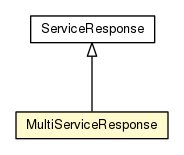org.universAAL.middleware.service
Class MultiServiceResponse


public final class MultiServiceResponse extends ServiceResponse
MultiServiceResponse represents a set of ServiceResponse
s.| Modifier and Type | Field and Description |
|---|---|
static String |
MY_URI
A resource URI that specifies the resource as a multi service response.
|
PROP_SERVICE_CALL_STATUS, PROP_SERVICE_HAS_OUTPUT, PROP_SERVICE_SPECIFIC_ERROR, PROP_UNBOUND_OUTPUT_ALLOWEDONLY_LOCAL_SCOPE, PROP_ORIG_SCOPE, PROP_SCOPESANON_URI_PREFIX, blockAddingTypes, isXMLLiteral, NAMESPACE_PREFIX, ns_delim_index, PROP_INVOLVED_HUMAN_USER, PROP_RDF_FIRST, PROP_RDF_REST, PROP_RDF_TYPE, PROP_RDFS_COMMENT, PROP_RDFS_LABEL, PROP_SERIALIZATION_FULL, PROP_SERIALIZATION_OPTIONAL, PROP_SERIALIZATION_REDUCED, PROP_SERIALIZATION_UNDEFINED, props, RDF_EMPTY_LIST, RDF_NAMESPACE, RDFS_NAMESPACE, SERVICE_NAMESPACE, TYPE_RDF_LIST, TYPE_RDFS_CLASS, uri, VOCABULARY_NAMESPACE| Constructor and Description |
|---|
MultiServiceResponse() |
MultiServiceResponse(String instanceURI) |
| Modifier and Type | Method and Description |
|---|---|
void |
addOutput(ProcessOutput output)
Adds output payload to this object.
|
void |
addResponse(ServiceResponse response)
Add a new response to the list of responses.
|
CallStatus |
getCallStatus()
Retrieves the call status.
|
List<Object> |
getOutput(String paramURI)
Returns all value objects returned for a required output with the given
paramURI.
|
List<ProcessOutput> |
getOutputs()
Retrieves all of the service outputs as a raw
List without
any rearranging. |
Map<String,List<Object>> |
getOutputsMap()
Get all outputs.
|
List<ServiceResponse> |
getResponses()
Get a list of all responses.
|
boolean |
hasCallStatus(CallStatus status)
Determines if one of the responses has the given call status.
|
boolean |
hasNoSuccessCallStatus()
Determines if one of the responses has a status that is not succeeded.
|
boolean |
setProperty(String propURI,
Object value)
This method inherits the superclass behavior, but performs some
additional checks for correctness of the property values, specific for
the
ServiceResponse. |
addOutput, allowUnboundOutput, disallowUnboundOutput, getOutput, getProvider, isUnboundOutputAllowed, isWellFormedaddScope, clearScopes, getOriginScope, getScopes, isScoped, isSerializableTo, setOriginScope, setScopeaddType, getLocalName, getNamespace, getProperty, getPropertyURIs, getType, getTypes, getURI, hasQualifiedName, isAnon, numberOfPropertiesaddMultiLangProp, asList, asList, asRDFList, changeProperty, copy, deepCopy, equals, generateAnonURI, getDefaultLang, getFilename, getMultiLangProp, getOrConstructLabel, getOrConstructLabel, getPropSerializationType, getResource, getResourceComment, getResourceLabel, getResourceLabel, getStaticFieldValue, hashCode, hasProperty, isAnon, isBlockingAddingTypes, isClosedCollection, isQualifiedName, literal, representsQualifiedURI, serializesAsXMLLiteral, setPropertyPath, setPropertyPath, setPropertyPathFromOffset, setResourceComment, setResourceLabel, toString, toStringRecursive, toStringRecursive, unliteralpublic static final String MY_URI
public MultiServiceResponse()
public MultiServiceResponse(String instanceURI)
public void addOutput(ProcessOutput output)
ServiceResponseaddOutput in class ServiceResponseoutput - the ouput that needs to be added.public CallStatus getCallStatus()
CallStatus.succeeded if
at least one of the responses has status CallStatus.succeeded.getCallStatus in class ServiceResponsepublic boolean hasCallStatus(CallStatus status)
status - the status to search for.public boolean hasNoSuccessCallStatus()
public List<Object> getOutput(String paramURI)
ServiceResponsegetOutput in class ServiceResponseparamURI - the URI of the required output.public Map<String,List<Object>> getOutputsMap()
ServiceResponseServiceResponse.getOutput(String) but
instead of providing the output of one parameter, it provides the outputs
of all parameters. The URI of the parameter is the key of the returned
map.getOutputsMap in class ServiceResponsepublic List<ProcessOutput> getOutputs()
ServiceResponseList without
any rearranging.getOutputs in class ServiceResponseMultiServiceResponse then the list can
contain more than one ProcessOutput with the same URI;
those outputs then come from different responses.public boolean setProperty(String propURI, Object value)
ServiceResponseServiceResponse.setProperty in class ServiceResponseResource.setProperty(java.lang.String,
java.lang.Object)public void addResponse(ServiceResponse response)
response - The response to add.public List<ServiceResponse> getResponses()
Copyright © 2018 universAAL Consortium. All rights reserved.